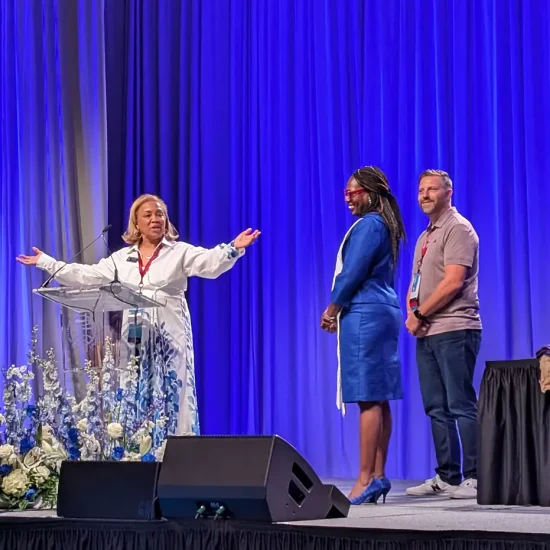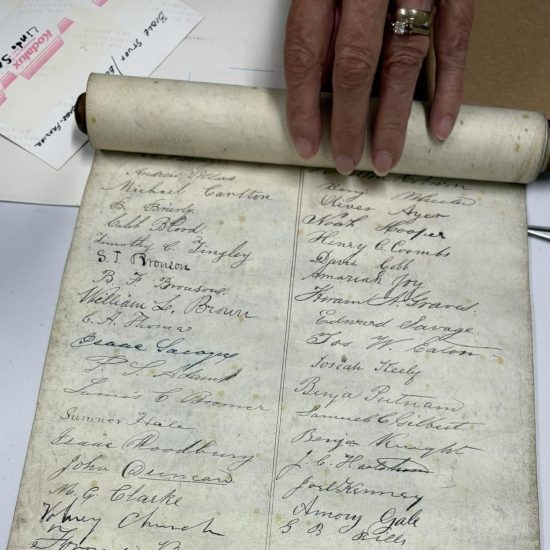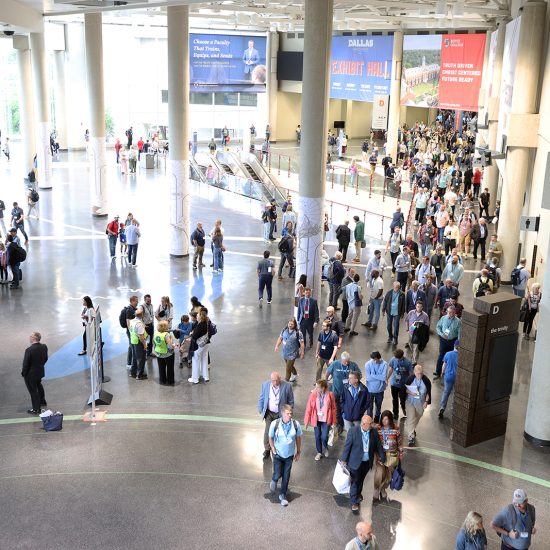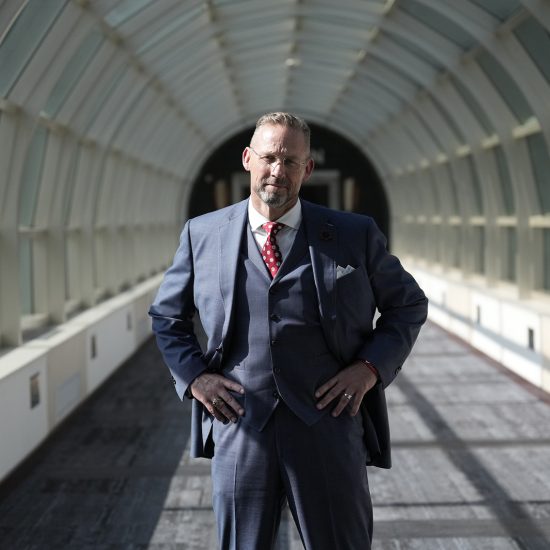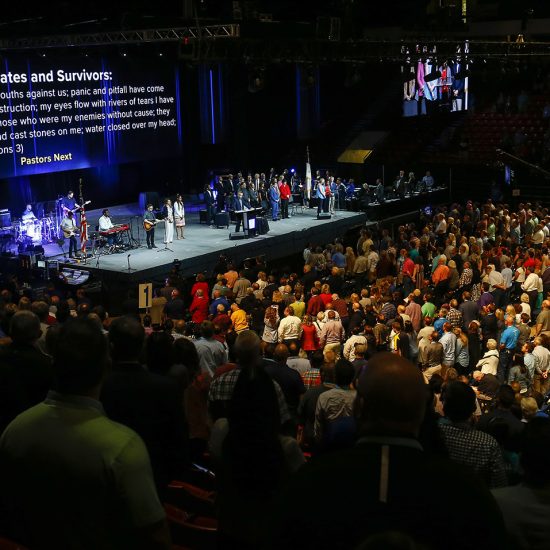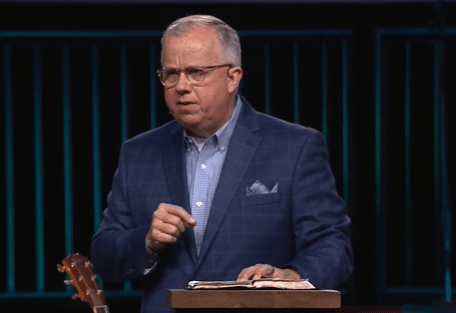
Less than a week after a pastor announced a challenge to Al Mohler for president of the Southern Baptist Convention, another pastor also joined the race. But unlike the other two candidates who spent the last year promoting Donald Trump and attacking Critical Race Theory, the latest candidate instead worked for racial reconciliation and criticized Mohler’s anti-CRT efforts.
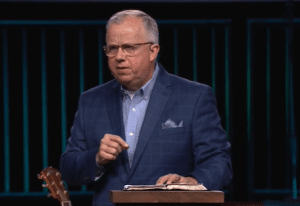
Screengrab as Ed Litton preaches at the 2019 SBC Pastors’ Conference in Birmingham, Alabama.
Ed Litton, pastor of Redemption Church in the Mobile, Alabama, suburb of Saraland, will be nominated by Fred Luter, who was the first — and, so far, only — Black SBC president. Litton previously served various SBC leadership roles, including as SBC First Vice President two decades ago, as president of the SBC Pastors’ Conference, on the Resolutions Committee, and on seminary boards.
“Recently, I shared with my church, ‘A deeply divided nation needs a deeply united church,’” Litton told the SBC’s Baptist Press on Tuesday (Jan. 19). “Simply and honestly, we are not there as a convention of churches. I fear our credibility is faltering. While the world waits deeply in need of Jesus, we have seen division grow in our SBC family.”
Litton joins Mohler, president of Southern Baptist Theological Seminary in Louisville, Kentucky, and Mike Stone, pastor of Emmanuel Baptist Church in Blackshear, Georgia, in the race for president.
Mohler first announced his candidacy in 2019 to run in 2020, but the meeting was canceled due to COVID-19. Since then, he sparked controversy for backing Trump’s reelection after opposing Trump in 2016, and for leading the six SBC seminary presidents to denounce Critical Race Theory, a decades-old broad social science perspective that scholars use in analyzing issues of race, power, and society.
Stone, immediate past chair of the SBC Executive Committee, announced his candidacy on Jan. 13. He serves on the steering council of the Conservative Baptist Network, a group that launched in February 2020 to move the SBC further rightward. Before the anti-CRT statement by the seminary presidents, some CBN leaders criticized Mohler and SBTS for allegedly embracing CRT. The CBN steering council includes a number of Republican activists, and the group complained that some in the SBC tried to stop Vice President Mike Pence from speaking at the 2018 SBC annual meeting.
Litton’s approach to the issue of racial injustices has been markedly different.
After the protests in Ferguson, Missouri, following the police killing of Michael Brown, Litton started meeting with a diverse group of pastors in Mobile. The Pledge Group of Mobile has worked on racial reconciliation efforts, including a joint statement in October with similar pastoral groups in Charleston, South Carolina, and Montgomery, Alabama. Litton helped write that document, “Deep South Joint Statement on the Gospel, Racial Reconciliation, and Justice.”
“The Deep South has a skilled passive resistance mechanism,” Litton told the Baptist Press in October after the statement’s release. “The reality is we have a steep history. We have a deep and painful scarred past, and we’re saying in spite of that, we believe God can heal us.”
He joined another statement in December after the anti-CRT statement Mohler led the seminary presidents to issue. That statement Litton signed, “Justice, Repentance, and the SBC,” noted the SBC’s founding to support slavery.
“We see attempts to downplay this historical reality. Many people deny the existence of systemic injustice as a reality. Many who recognize systemic injustices are labeled as ‘Marxists,’ ‘Liberals,’ and ‘Critical Race Theorists,’ even though they are theologically orthodox and believe in the total sufficiency of Scripture,” the statement reads. “While God desires us to continue growing in the area of racial justice, the actions of some in the SBC appear to be more concerned with political maneuvering than working to present a vibrant, gospel-loving, racially and culturally diverse vision. While some progress has occurred, some recent events have left many brothers and sisters of color feeling betrayed and wondering if the SBC is committed to racial reconciliation.”
Litton’s wife, Kathy, was elected as SBC registration secretary at the 2019 annual meeting. Since that position oversees the voting at annual meetings, she resigned her position before her husband announced his candidacy. She cited the need to “maintain the highest standards of integrity in our voting processes.”

